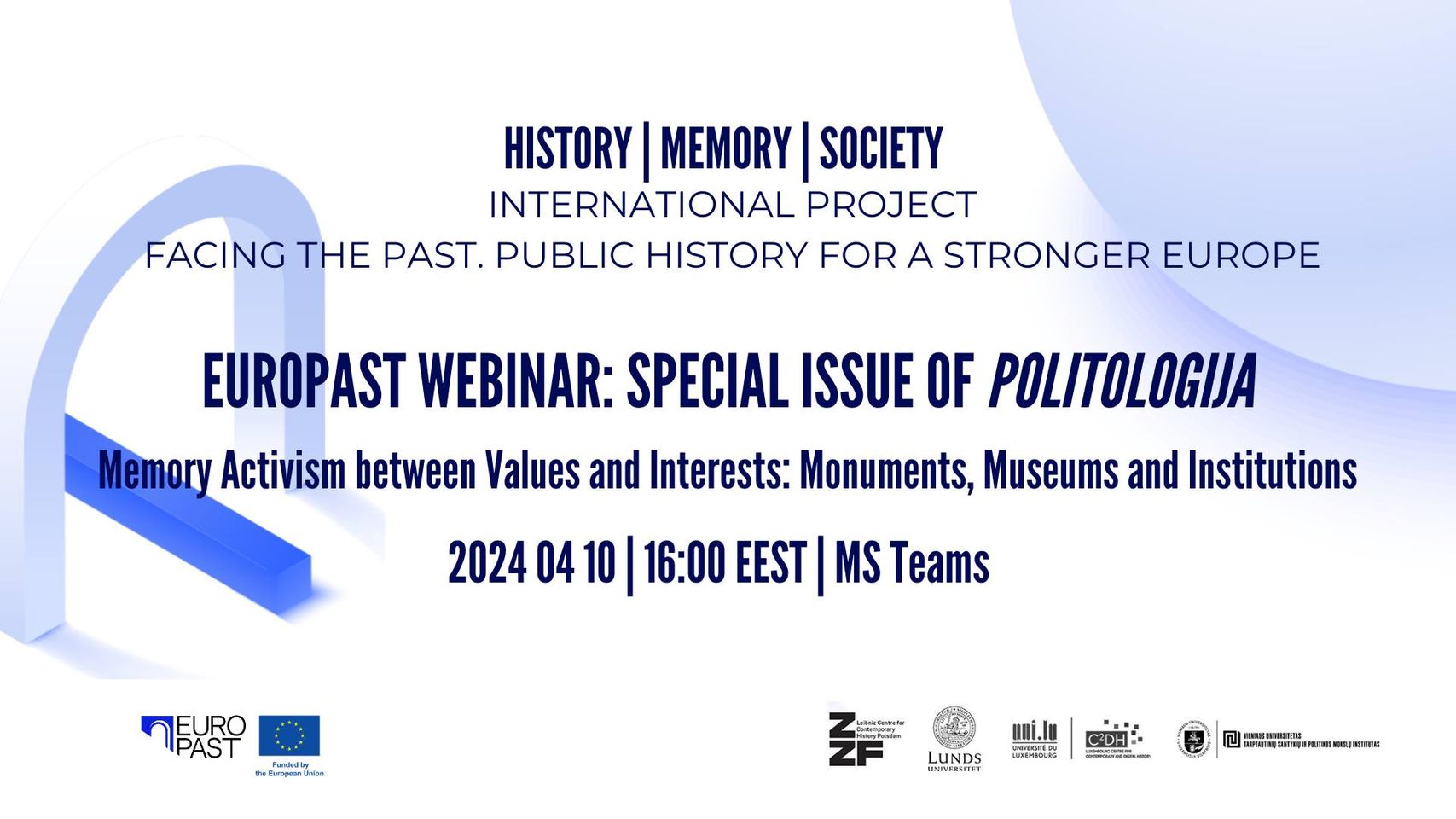In the 21st century, we have witnessed the intensification of memory activism—attempts to challenge the dominant memory templates and institutions. Does memory activism, where individual and collective memory become part of public projects, help to link history and memory? Are such aspirations not hindered by the intentions and methods of memory activists and their assumptions about identity? How do normative criteria of public participation, civic engagement, professional standards, and democracy-building manifest themselves in the practices of memory activism? Is it possible that memory activism can weaken democracies, stimulating illiberal memory politics?
On 10 April 2024 at 4pm (EEST), we invite you to explore the answers to these questions with the contributors to the journal "Politologija" special issue "Memory Activism between Values and Interests: Monuments, Museums and Institutions":
- Gabrielė Norkūnaitė (Vilnius University), "Memory Politics on Screen: The Aesthetics of Historical Trauma in Isaac (2019)";
- Aleksandra Kuczyńska-Zonik (The John Paul II Catholic University of Lublin), "Silent Protesters or Acceptors? The Reaction of the Russian-speakers to the Removal of the Soviet Monuments in Latvia and Estonia after Russia’s Full-scale Invasion of Ukraine";
- Piotr Eckhardt (University of Wrocław), “Who should Issue a Permit for the Memorial? Administrative Law as a Platform for the Conflict over the Construction of the Monument to the Victims of the Smoleńsk Tragedy in Warsaw”;
- Natalia Golysheva (University of Oxford), "Digging up Old Stories: How the Soviet Myths of Allied Intervention into the Russian North in 1918–1919 are used in the Context of Russia’s War in Ukraine. The Case of Mudyug Concentration Camp Museum".
- Aleksandra Kuczyńska-Zonik (The John Paul II Catholic University of Lublin), "Silent Protesters or Acceptors? The Reaction of the Russian-speakers to the Removal of the Soviet Monuments in Latvia and Estonia after Russia’s Full-scale Invasion of Ukraine";
- Piotr Eckhardt (University of Wrocław), “Who should Issue a Permit for the Memorial? Administrative Law as a Platform for the Conflict over the Construction of the Monument to the Victims of the Smoleńsk Tragedy in Warsaw”;
- Natalia Golysheva (University of Oxford), "Digging up Old Stories: How the Soviet Myths of Allied Intervention into the Russian North in 1918–1919 are used in the Context of Russia’s War in Ukraine. The Case of Mudyug Concentration Camp Museum".
The event will be moderated by two editors of the special issue Prof. Violeta Davoliūtė (Vilnius University) and Prof. Dovilė Budrytė (Georgia Gwinnett College/Vilnius University). Unfortunately, the third editor, Prof. Thomas Cauvin (University of Luxembourg), will not participate, but we value his contribution very much.
The event will be held remotely on the MS Teams platform. Registration is required to attend the event: https://forms.office.com/e/ave657ZjcH
In anticipation of the event, see the special issue: https://www.zurnalai.vu.lt/politologija/article/view/34532
This special issue of Politologija is part of a project funded by the European Union under the WIDERA programme (EUROPAST project, grant agreement No. 101079466). The views and opinions expressed are those of the authors alone and do not necessarily reflect those of the European Union.


